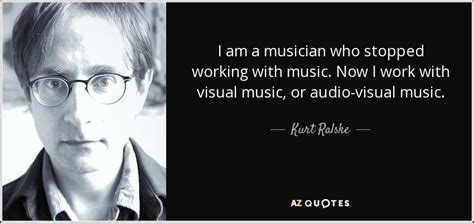A Quote by Ansel Adams
The negative is the equivalent of the composer's score, and the print the performance.
Quote Topics
Related Quotes
I think [testing] has had a profoundly problematic impact on student learning. It must seem to students that their worth as individuals is equivalent to their test score. The stress the high stakes culture has on teachers is also highly negative and must surely impact students in a negative way. It also de-professionalizes teachers because it encourages them to be script readers, followers of rigid schedules, and to disregard the needs of the people they teach in favor of the scripts and schedules.
I've done a lot of performance practice, Baroque playing, and some of the joy and the challenge of it is figuring out what the composer intended... You have music of the 17th century - it's all whole notes and half notes. But inside of that, there are so many things that one can do, at least according to what we know about performance practice.

































